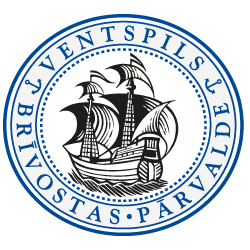
Last weekend, the Committee on Transport and Infrastructure of Verkhovna Rada of Ukraine, operating within the Ukrainian Union of Industrialists and Entrepreneurs (USPP), held an offsite meeting at the Ventspils Business Centre in Latvia. Discussions with local entrepreneurs and representatives of the Freeport of Ventspils focused on the North–South transport corridor, the implementation of the Three Seas Initiative, and potential cooperation with the Ukrainian port of Chornomorsk.
The meeting was attended by H.E. Anatolii Kutsevol, Ambassador of Ukraine to Latvia, who expressed his strong support for the goals and directions outlined during the session.
The event was made possible through close cooperation between the Baltic Association – Transport and Logistics (BATL) and the Ukrainian Committee on Transport and Infrastructure, and the Ukrainian Railway Operators Association as a co-founding partners.
Ivars Landmanis, President of BATL, highlighted the significance of the gathering: “This spring, we signed a Memorandum of Understanding within the framework of the Three Seas Initiative to foster efficient multimodal transport and to establish an integrated transport corridor between the Baltic Sea and Ukraine’s Black Sea ports. The exchange of experience and best practices is a key component of our cooperation. This offsite meeting – with the participation of entrepreneurs from both Ukraine and Latvia – is a critical step toward realizing the goals declared in the Memorandum.”
Aivars Gobiņš, Chairman of the Board of several companies under BATL, emphasized that meetings of this kind are crucial in strengthening business ties and paving the way for future collaboration: “The discussions held during the meeting allowed us to revisit important cooperation opportunities, particularly in the implementation of the Three Seas Initiative and the creation of new logistics chains, which are vital to both Latvia and Ukraine. Ventspils-based companies are already working with partners in all Three Seas countries, and we hope Ukraine will soon formally join the initiative.”
Anatoliy Kinakh, President of the Ukrainian Union of Industrialists and Entrepreneurs, opened the meeting by emphasizing Ukraine’s commitment to transforming its transport infrastructure in line with European Union standards. He acknowledged Latvia’s valuable experience in aligning its own systems with EU requirements: “Our cooperation aims not only at economic gain, but also at reinforcing the security of our continent.”
Serhiy Nenko, Chairman of Ukraine’s Committee on Transport and Infrastructure, stressed the importance of joint efforts to establish a Northern Transport Corridor: “Diversifying cargo flows is essential for Ukraine, the Baltic States, and Poland. That’s why we are holding this offsite meeting in Ventspils – to explore how to best move forward together.”
He also noted that Northern European markets – including Sweden, Denmark, the Netherlands, the Baltics, and Poland – are critically important to Ukraine. Creating a corridor capable of sustaining high-volume cargo flows is a strategic necessity for both Ukraine and Europe.
Robert Mirek Hoffman, a Polish political economy consultant with extensive experience in international projects, spoke about the need to develop secure and efficient transport systems through the Three Seas Initiative. He reminded participants that the Initiative, launched in 2015 by the Presidents of Poland and Croatia, unites 12 countries between the Baltic, Adriatic, and Black Seas – and is far more than just a regional dialogue platform: “The Three Seas Initiative is a strategic response to 21st-century challenges: energy independence, logistics resilience, digital sovereignty, regional cohesion, and collective security architecture.”
Hoffman emphasized that the Initiative cannot succeed without Ukraine and Moldova:
“This is not a time for statements – it is a time for action, vision, courage, and shared responsibility.”
He also described the Three Seas Initiative as an investment engine, noting that its investment fund and new regional financial instruments are mobilizing private capital, co-financing from international institutions, and strategic investments in transport, energy, technology, and trade corridors.
Pavlo Podolian, Deputy Director for Economic Affairs at Ukraine’s state-owned Chornomorsk Sea Trade Port, shared insights into the port's shift toward a sustainable development model in response to current challenges and infrastructure concessions. “Chornomorsk Port is not only prepared for change – it is leading the way in introducing a new approach to port infrastructure management in Ukraine, built on public-private partnerships, innovation, investor engagement, and transparent decision-making,” Podolian stated.
Igors Udodovs, Acting CEO of the Freeport of Ventspils, highlighted the importance of adapting to changing global logistics trends: “Logistics routes and economic directions are constantly evolving. Ukraine, even amid ongoing war – which we hope ends soon – remains a vital part of the global economy. We see real opportunities for cooperation, which we are ready to take to the next level.”
He also recalled the cooperation memorandum signed this spring between the Freeport of Ventspils Authority and the Port of Chornomorsk, which outlines collaboration in various areas, including the exchange of experience and the development of new transport corridors. “Both Chornomorsk and Ventspils are looking toward renewable energy as a key direction for future development. Experience sharing in this field will be especially valuable,” Udodovs added.
The joint session was attended by leaders of several Ventspils-based port companies, including Ventbunkers, Ventspils Commercial Port, Kālija Parks, Baltic Coal Terminal, and Baltijas Ekspresis.
Jānis Pauls, CEO of Baltijas Ekspresis, emphasized that cooperation and knowledge exchange between Ukrainian and Latvian transport sector stakeholders will continue: “We sincerely hope this brutal war will end soon. At our next meeting, we want to be discussing how we can assist Ukraine in rebuilding its war-damaged infrastructure,” Pauls concluded.
